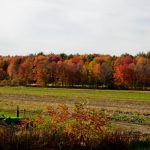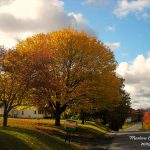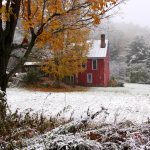A Letter to Our Readers
Winter isn’t easy, is it? fresh snow takes our breath away with its stark beauty, but we also know that the early dark and cold winds challenge even the hardiest of us. So why would so many of us feel as though we’d lost an important part of life if winter deserted our landscape? I […]
Winter isn’t easy, is it? fresh snow takes our breath away with its stark beauty, but we also know that the early dark and cold winds challenge even the hardiest of us. So why would so many of us feel as though we’d lost an important part of life if winter deserted our landscape? I think, in part, it’s because our collective memories are filled with frozen country ponds, bundling up to build snowmen, pulling our sleds behind us, and then that delicious warmth of opening the door, gulping the cocoa, and smelling the simmering soup. Just settling in. In the pages that follow we offer the grit, the beauty, and the indelible warmth that winter gives us.
I promise that when you read LeeLee Goodson’s “Cold Snap”, you’ll gain a new appreciation for how New Englanders cope with the bitterest of winter days. And after wiping away your tears, look at Carl Walsh’s rare photos of black bears in the heart of Maine’s northern wilderness. “In my 23 years of professional photography,” he wrote us, “I had never seen these sights.” We call his story “Into the Den.”
Maine’s black bears have their way of surviving winter — snug in their shelters, protected from the elements and their enemies. We New Englanders have other ways. Some of us, I know, go into a sort of human hibernation, trying to avoid the cold and snow as if they were intruders. I prefer to look at winter differently — and my preferences are reflected in these pages.
For example, you’ll feel right at home at the friendly peaks featured in “Ski Cozy in Vermont”. These small mountains are a throwback to a time when the sport was about seeing your friends and neighbors at the local hill, skiing nonstop for hours without huge crowds, and then coming back to the lodge for steaming cocoa. We’ve paired each ski area with an intimate inn that’ll coax you to discover just how warm a Vermont winter outing can be. We’ll also show you how easy (and affordable!) it can be to build your own backyard ice rink — the sort of family project that will pay off with warm memories forever.
No other season makes the indoors so inviting — that’s a treasure all in itself. Inside these pages, we’ll reintroduce you to the classic Rumford fireplace — and then take you to food editor Annie B. Copps’s kitchen, where she shares her favorite personal soup recipes. They’ll melt the cold in any storm.
Our research tells us that the average Yankee reader settles down to a good hour of perusing each issue. Wherever you are, we hope the next while will find you in a toasty room, as our pages bring a New England winter to life. At times, we all complain about it — but deep down we all know we can’t live without it.







